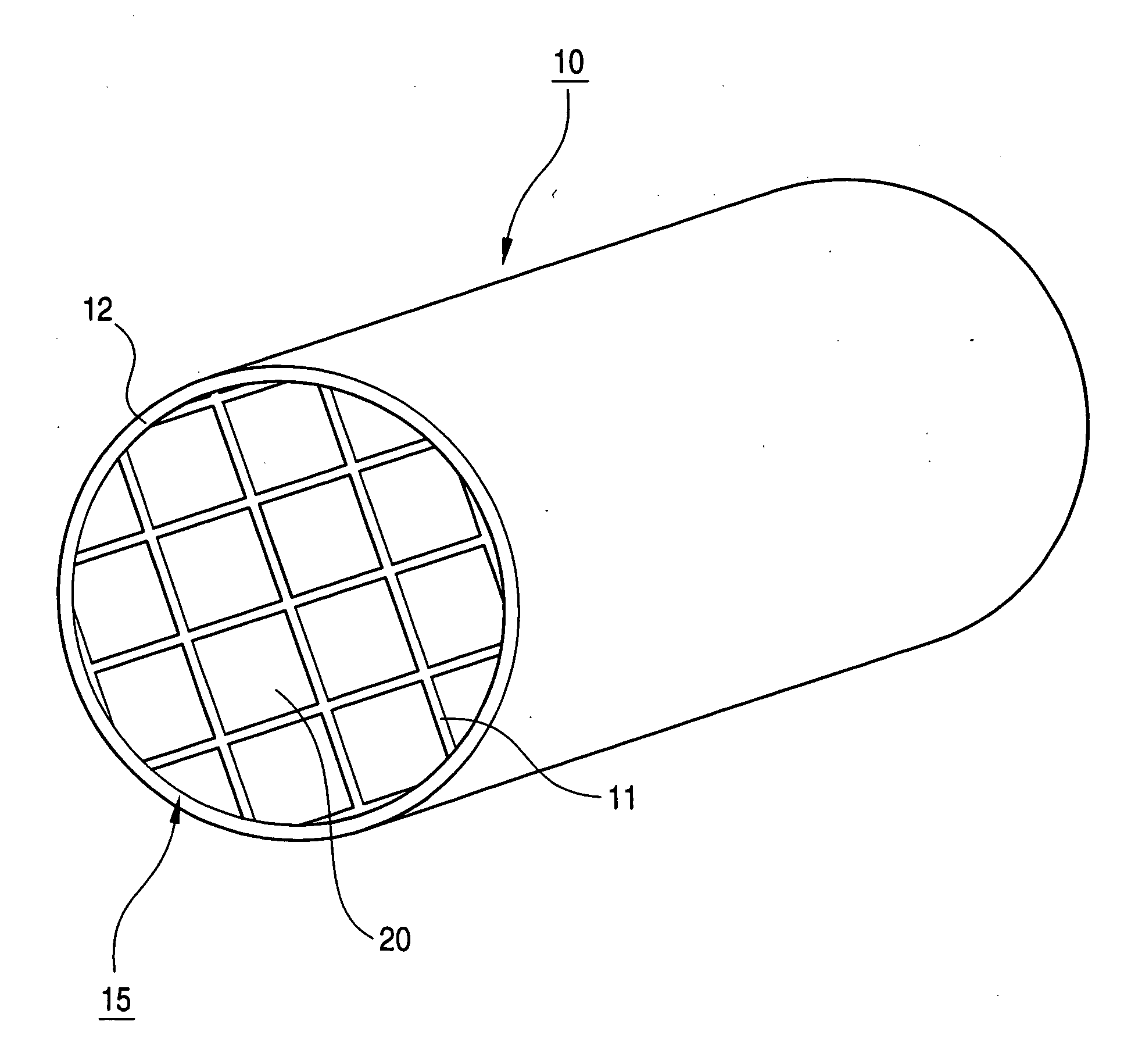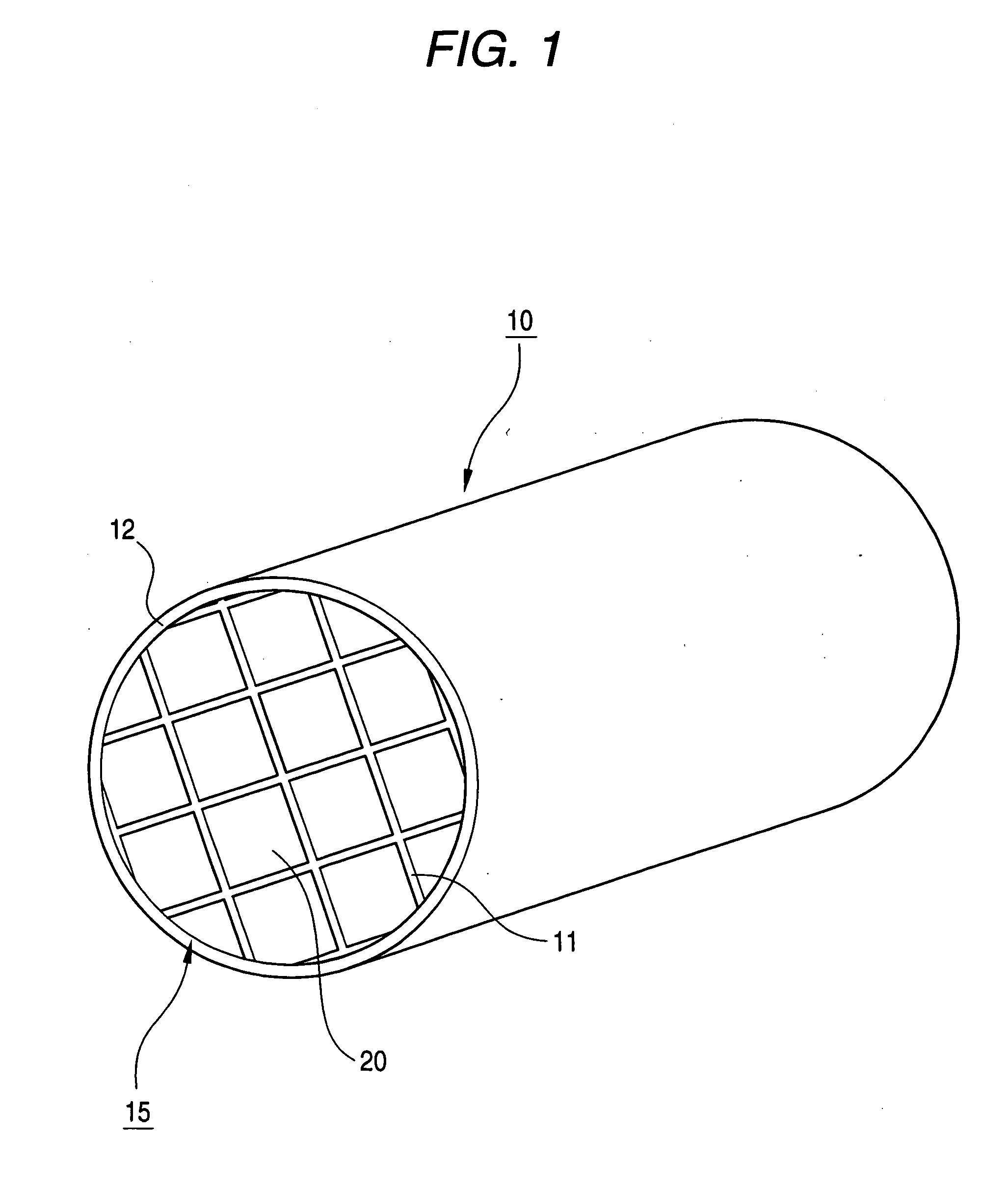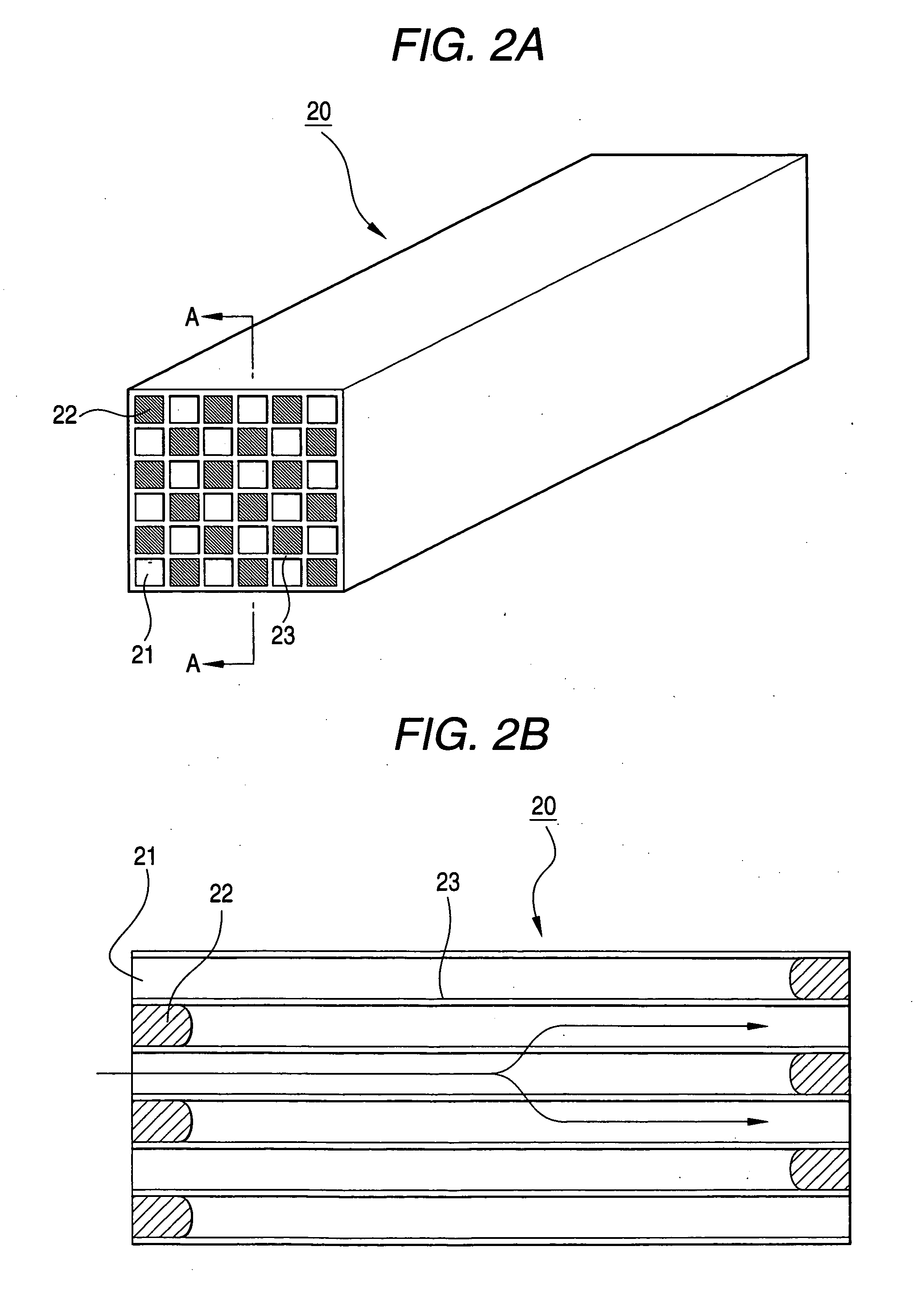Honeycomb structure
a honeycomb and ceramic structure technology, applied in the field of honeycomb structure, can solve the problems of cracks and soot in the honeycomb structure, harmful to the environment or to human bodies, and the soot contained in the exhaust gas discharged from the internal combustion engine of vehicles such as buses or trucks, etc., and achieve the effect of large effect, small heat capacity of the honeycomb structure using the porous ceramic members, and not lowering the characteristic of temperature ris
- Summary
- Abstract
- Description
- Claims
- Application Information
AI Technical Summary
Benefits of technology
Problems solved by technology
Method used
Image
Examples
example 1
[0123] Using the adhesive paste B as an adhesive layer 2 mm thick, 16 (4 by 4) porous ceramic members A were bonded and successively cut by a diamond cutter. Thus, a cylindrical ceramic block 15 (see FIG. 1) was produced.
[0124] Next, the adhesive paste B was used as a coat forming paste and applied to the outer circumferential portion of the ceramic block 15 so as to be 0.5 mm thick, and then dried at 120° C. Thus, a cylindrical honeycomb structure 10 measuring 143.8 mm in diameter and 150 mm in length was manufactured.
PUM
| Property | Measurement | Unit |
|---|---|---|
| apparent density | aaaaa | aaaaa |
| apparent density | aaaaa | aaaaa |
| pore size | aaaaa | aaaaa |
Abstract
Description
Claims
Application Information
 Login to View More
Login to View More - R&D
- Intellectual Property
- Life Sciences
- Materials
- Tech Scout
- Unparalleled Data Quality
- Higher Quality Content
- 60% Fewer Hallucinations
Browse by: Latest US Patents, China's latest patents, Technical Efficacy Thesaurus, Application Domain, Technology Topic, Popular Technical Reports.
© 2025 PatSnap. All rights reserved.Legal|Privacy policy|Modern Slavery Act Transparency Statement|Sitemap|About US| Contact US: help@patsnap.com



